Vancouver Municipal Election 2014
As the November 15th election day rapidly approaches, many Vancouverites of voting age are coming close to deciding who they will elect to the Mayor’s Office, City Council, School Board, and Parks Board.
On the election ballot, there are 10 candidates for Mayor, 49 candidates for the 10 City Council positions, 31 candidates for 7 Parks Board Commissioner seats, and 29 candidates for 9 School Trustee positions on the Vancouver Board of Education.
4 political parties are running a mayoral candidate in this election: Vision Vancouver, The Coalition of Progressive Electors (COPE), The Civic Non-Partison Association (NPA), and the Stop Party. The Stop Party, however, is a party with only one candidate (Meynard Aubichon for Mayor), and thus is not truly a political party like the others. Other notable parties in this election include the Green Party (7 candidates), Vancouver 1st (10 candidates), and the newly formed Cedar Party (4 candidates).
In mayoral debates on radio and television, the two front running candidates for Mayor have been the incumbent Gregor Robertson of Vision Vancouver, and Kirk LaPointe of the NPA. Mayor Robertson is campaigning with promises of continued green initiatives, pushing density across the city, and strongly opposing more oil tankers entering the Vancouver harbour. Kirk LaPointe, on the other hand, is campaigning with many oppositions to the current Vision government, and says he will make government more open to the public, will freeze property taxes, and will never meet with developers while in office. In the opinion of Grade 11 student Sebastian Steven, the two party’s campaigns have left a firm imprint in his mind. “Gregor has a smile that would make me give away my first born child if I needed to. But Kirk… doesn’t. That’s a dangerous thing in a politician.”
As the days count down to the end of this election race, the NPA is putting a lot of pressure on Vision Vancouver. For most of the campaign, the NPA has concerned the public more with what Vision has been doing wrong, rather than what they will do right. This has educated the public on many supposed “flaws” in Vision Vancouver and Mayor Gregor Robertson, and has most definitely put them on their heels in the campaign. In fact, the NPA has been so focused on campaigning against Vision, that they only fully released their platform on October 30th, just 16 days before the election date.
With just two days until the end of this strenuous political campaign, the NPA’s aggressive advertising and electioneering is finally getting to the head of Gregor Robertson. In a November 12th debate on CBC Vancouver, Gregor Robertson resorted to apologizing for any wrongs he has made in his previous terms, and even begged COPE voters to side with Vision. “While we’ve done a lot of good things, we’ve done very well in the past six years, there’s also things that we haven’t done particularly well. When I haven’t met your expectations, I am sorry. And I know that if I am re-elected again, and honoured to have that position going forward, that I can do better,”
It will be up to voters to decide who will win this iteration of the “Battle For Vancouver”.

Hartley is currently a Grade Twelve student at Saints, and is very proud to be writing for The Creed this year. A lifer, Hartley has attended St. George's...



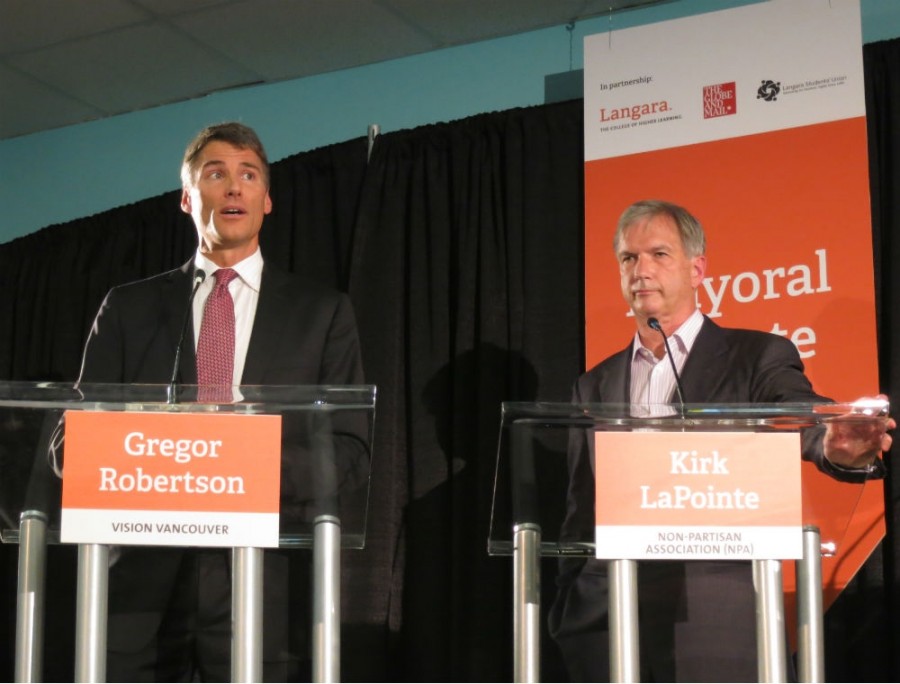
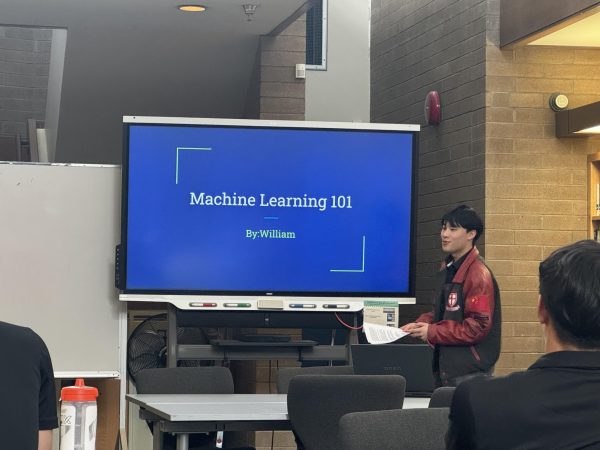
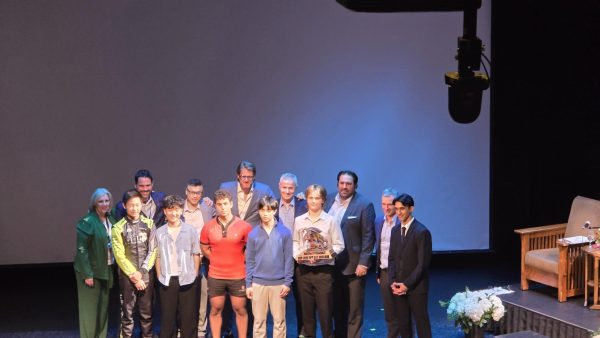
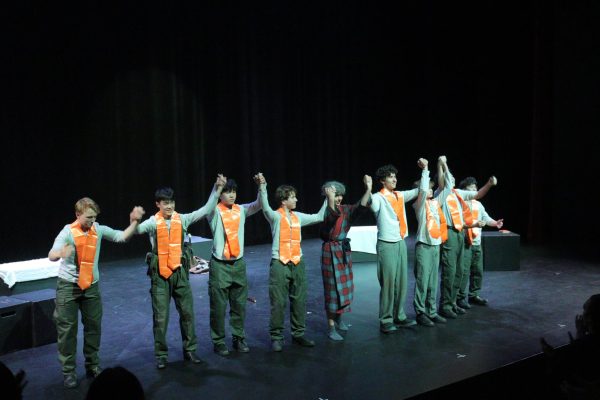



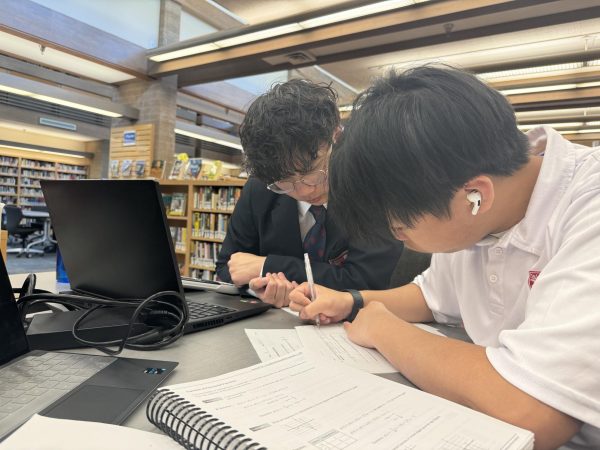

David Yang • Nov 14, 2014 at 5:42 pm
Hartley you genius! Great article!!!!
Larry Witten • Nov 14, 2014 at 3:57 pm
I like the article which contains sufficient factual material to inform the reader, is neutral in approach yet includes enough subjective thought on the different political approaches to make the reader think about whether or not the
reader agrees with the author.
Professor Julius l.Stoller • Nov 14, 2014 at 9:06 am
Absolutely outstanding in terms of relevant information, and intelligent comment. Pity the daily press, local or national does not have writer to approach this level of excellence.
Larry Witten • Nov 15, 2014 at 12:09 pm
A good article with well organized factual content, neutral in tone but containing enough of the author’s subjective input to encourage the reader to think about whether or not the reader agrees with the author.